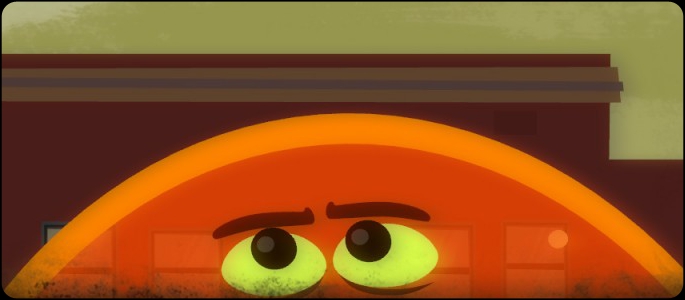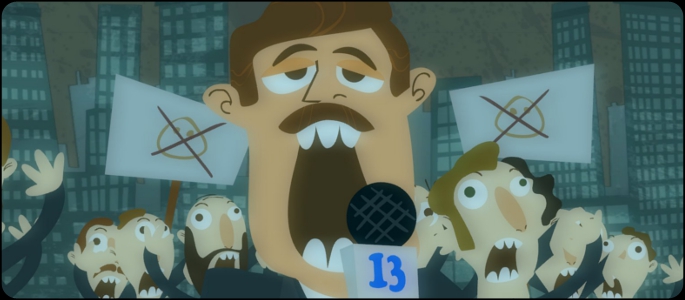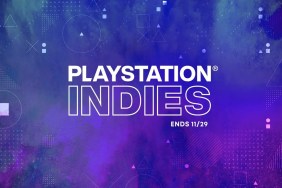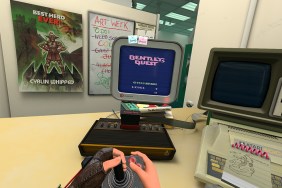With digital distribution becoming an increasingly viable platform, independent developers have more and more potential markets where they can sell their wares. But as the industry evolves, developers must move with it, predicting which platforms will be a success, and which will fall by the wayside. To talk about the threat of smartphones on dedicated handhelds, the changing price expectations of gamers as well as the risk of owning your own IP, we chatted to Graham Smith, Co-Founder and COO of DrinkBox Studios, in a wide ranging interview.
Developers of the highly enjoyable PSN exclusive Tales from Space: About a Blob, DrinkBox are hard at work on the downloadable Vita title Tales from Space: Mutant Blobs Attack, as well as the recently announced Guacamelee for an unknown platform. For more on DrinkBox, stay tuned for an About a Blob giveaway later today here, and a Mutant Blobs Attack interview later this week.
With the iPhone 4S selling 4 million in 2 days, and the 3DS selling 0.7 million in Nintendo’s first quarter, is there a worry that the dedicated handheld faces extinction?
I’ve been watching these numbers as well, and I think the iPhone is being purchased primarily as a smartphone, not as a gaming device. I’m still continuing to hope that a device made exclusively for playing games will be superior and appeal more to gamers than an all-in-one device. People still buy steak knives even though the Swiss army knife exists.
My personal feeling is that the 3DS just does not have the games it needs on the market yet. I had one in my hands in the store on launch day, and put it back down when I saw that there were no games I really wanted to play on it. It will be interesting to see how it does over the holiday season when more games are available.
Due to the widespread use of mobiles, many gamers are also becoming used to cheaper games that cost $0.99/59p, do you think it’ll be hard to convince consumers to pay $5.99 or $9.99 for a downloadable handheld title?
This is an unfortunate trend. I know people who will only download free games because they don’t even want to pay the 0.99.
The games on iOS are usually much smaller in scope and production value than games you can find on consoles. I find most of the $0.99 games that I have purchased are more “time wasters” than anything else. In my opinion, these types of games are simply not worth $9.99. Not to say that there are no good games on the platform. I loved playing Trainyard and Swords & Sworcery.
I think that gamers will continue to realize that you get more with handheld console games, and that it’s worth paying more for that. I hope that gamers are too smart to choose 10 bad games over 1 good one.
Free-to-play is becoming an increasingly popular, and increasingly lucrative, business decision for iOS developers. Would you ever consider the F2P model for a PSN or Vita title?
There are some ethical considerations that I would want to think hard on before ever making a free-to-play game. Ryan Creighton, another Toronto based indie developers and creator of Sissy’s Magical Ponycorn Adventure, wrote a good blog post about the types of people that spend money on these games, postulating that these people were not of sound mind, and that the industry may be taking advantage of them. I would definitely want to do some more research into this before making a game with a free-to-play business model.
Additionally, outside of ad-sponsored games, I think free-to-play games need to be designed that way from the ground up (if you want your game to make good money). This would probably limit your game design significantly. I feel like many companies making freemium games are probably putting money/profits as the priority for the company, and the games are just an avenue for that. I want my company to be primarily focused on making good games, and (hopefully) money will come as a result.
Some developers have praised Sony for their openness with the PS3 and PSN, with the platform holder allowing different business models like F2P, and allowing other services like Steam access. Do you think this openness should mean more developers should consider the PSN as a development platform?
I definitely feel that more developers should consider PSN, and I think that this is indeed happening. In our experiences Sony has been very helpful and great to work with.

Being based in Canada, you’re lucky enough to receive some tax breaks and Guacamelee has financial participation from the Canada Media Fund – do you think you’d still be able to create the same games, with the same scale, if you were based in another country?
Living in Canada, and especially Ontario, has been great for DrinkBox Studios. In addition to Tax Credits and the Canada Media Fund, we have also received grants from the Ontario Media Development Corporation that helped us bring our first game Tales from Space: About a Blob to the PS3 (on PSN), and our currently in-progress game Tales from Space: Mutant Blobs Attack to the Vita.
If we were based in another country, we would either need to make larger personal sacrifices (invest in the project with our own money), be more focused on doing external contracting work (slowing down the development of our own games), or work harder to secure a publisher (likely giving up IP and some creative control). None of these options is great, and so we do consider ourselves very lucky to be living where we are.
Even in Canada, the games industry is going through a tumultuous time right now, new markets are emerging, but at the same time, a lot of developers are closing. Would you still recommend that developers start their own independent studios, or should they wait until the industry has settled?
I think that if you have talent and good ideas, you will succeed despite the current economy. When we first started DrinkBox 3.5 years ago, it seemed like another studio was closing its doors almost every week. In fact the founders of DrinkBox came from just such a studio, Pseudo Interactive, which closed down in early 2008.
There is no telling if or when the industry will settle. Assuming they can find a way to make it work financially, I would encourage people not to wait.
About a Blob was a Sony Pub funded game – looking back on the business decision now, are you happy that you traded exclusivity for more support and financial help?
We invested a lot of our own money into About a Blob and having a guaranteed royalty from Sony when the game released helped up to offset the risk of making the game. It was definitely the best decision at the time, and I would not change it.
How important do you think it is for smaller developers to own their own IP? Is the risk worth it?
I heard Chris Charla from Microsoft talking at GDC about how developers should not be afraid to give up their IP. His argument was that small indies don’t know how to exploit the IP anyway, so why would they want to keep it? I think that this is somewhat true (that Microsoft is in a much better position to exploit the IP than an indie developer is), but I don’t think that this is a good reason to give it up.
I think that IP is definitely valuable. If it wasn’t, publishers would not want it! However, I don’t think that it is so valuable that an indie developer should hang on to it at all costs. If you have to choose between keeping your IP and getting the game made at all, you should probably give up your IP. Once this game is finished and you have some more money in your pockets, you might be in a better position to keep the IP of your next title. Also, you can push to have things written into the contract that will have the IP revert back to you if the publisher does not use it, or that you have right of first refusal to projects based on that IP.
And finally, with rumors of a PS4 starting to circulate, what would be your dream console?
If we were living in a fantasy land, I think I’d want a single console to rule them all. From a gamers perspective, I would not need to have 3 different boxes with all their associated cords and controllers sitting in my living room, and from a developers perspective I would not have to pass multiple different certifications or worry about the current fragmentation of the market. And of course this amazing new console would be backwards compatible with all of my old games and have digital distribution for all new titles so I don’t have to ever hear the words “did you pre-order?” again.








